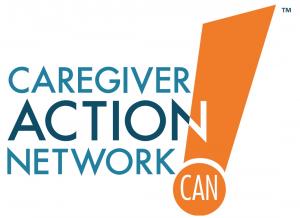
Navigating Alzheimer’s: Empowering Caregivers with Compassionate, Non-Medication Approaches to Neuropsychiatric Symptoms
Practical strategies for families of loved ones with Alzheimer's who are navigating the challenges of neuropsychiatric symptoms (NPS) like agitation & anxiety.
Neuropsychiatric symptoms (NPS) are among the most challenging aspects of Alzheimer’s disease, affecting up to 97% of patients, according to the National Institutes of Health, significantly impacting their quality of life and that of their caregivers. While medications have long been a standard tool in managing these symptoms, there is growing recognition of the effectiveness of non-medication approaches—especially in the early to mid-stages of the disease.
“Caregivers are often the first to notice subtle changes in their loved one’s mood or behavior,” said Marvell Adams Jr., CEO of Caregiver Action Network. “This resource was developed to not only validate what caregivers are experiencing but also to offer them real tools and encouragement to face these challenges with confidence.”
The resource emphasizes strategies such as personalized engagement, environmental adjustments, and communication techniques. These methods can ease psychological distress for individuals with Alzheimer’s and reduce caregiver stress—often with fewer side effects than pharmaceutical options.
However, it also acknowledges the complexities and limitations of non-medication care, particularly as Alzheimer’s progresses or when care shifts to a healthcare facility. In these instances, caregivers are encouraged to advocate for their loved one’s personal interests, such as music or pet therapy, to guide facility staff in delivering compassionate, individualized care.
Navigating Alzheimer’s will provide caregivers with evidence-based approaches to managing NPS, covering practical strategies to enhance patient quality of life while reducing caregiver stress. Topics will include behavioral interventions, environmental modifications, communication techniques, and the latest research on Alzheimer’s care.
“Our goal is to empower caregivers with practical knowledge and support,” said Adams. “By equipping them with the right tools and strategies, we hope to improve the well-being of both individuals with Alzheimer’s and those who care for them.”
For more information on Navigating Alzheimer’s: Effective Caregiving Approaches for Neuropsychiatric Symptoms, please visit https://www.caregiveraction.org/caregiver-tools/navigating-alzheimers/.
Jodi Koehn-Pike
Caregiver Action Network
+1 202-454-3966
media@caregiveraction.org
Visit us on social media:
LinkedIn
Instagram
Facebook
YouTube
TikTok
Distribution channels: Healthcare & Pharmaceuticals Industry, Media, Advertising & PR, Social Media
Legal Disclaimer:
EIN Presswire provides this news content "as is" without warranty of any kind. We do not accept any responsibility or liability for the accuracy, content, images, videos, licenses, completeness, legality, or reliability of the information contained in this article. If you have any complaints or copyright issues related to this article, kindly contact the author above.
Submit your press release
